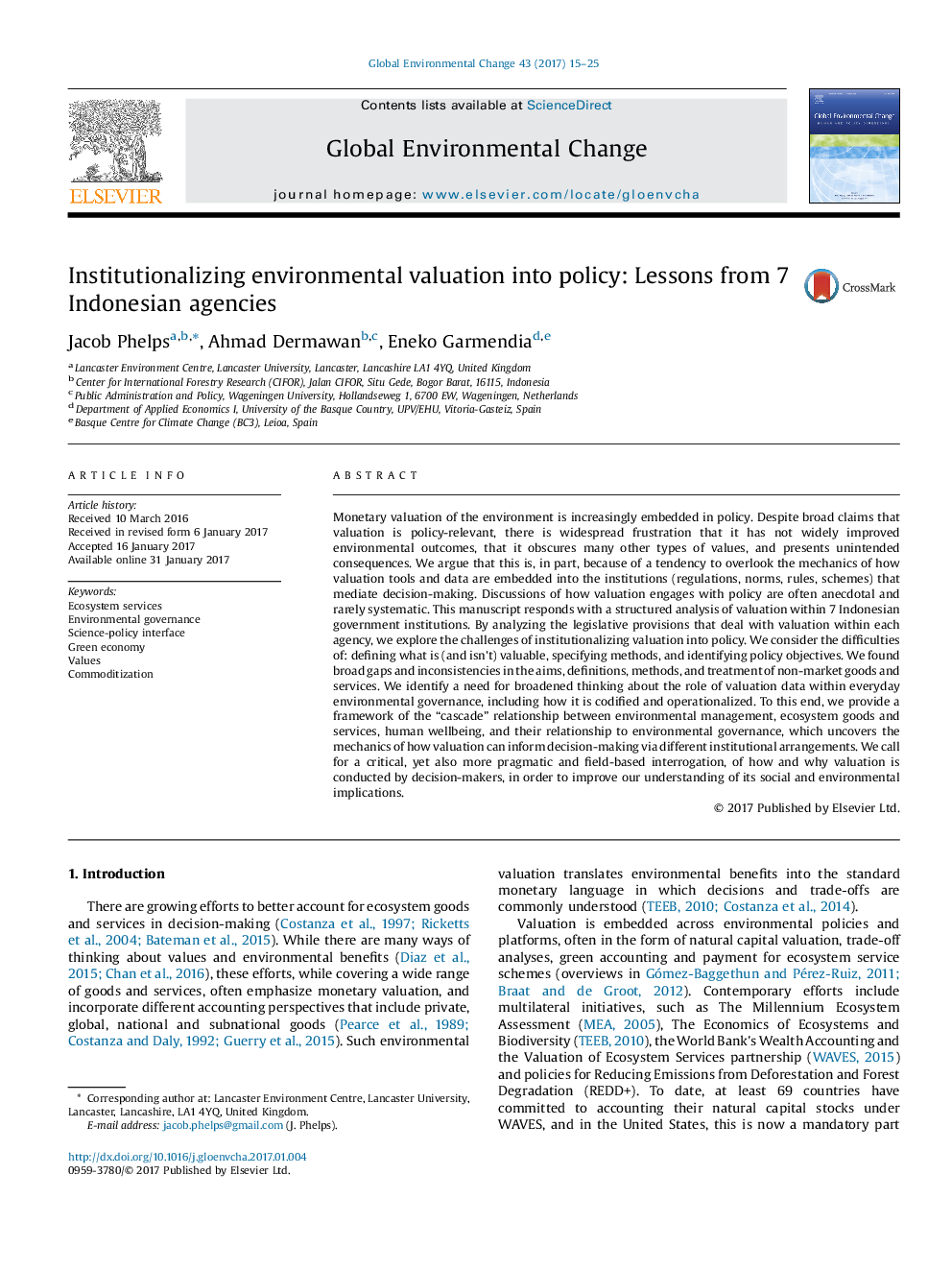ترجمه فارسی عنوان مقاله
ارزیابی محیط زیستی غیرمستقیم به سیاست: درسهایی از 7 سازمان اندونزیایی
عنوان انگلیسی
Institutionalizing environmental valuation into policy: Lessons from 7 Indonesian agencies
| کد مقاله | سال انتشار | تعداد صفحات مقاله انگلیسی |
|---|---|---|
| 140783 | 2017 | 11 صفحه PDF |
منبع

Publisher : Elsevier - Science Direct (الزویر - ساینس دایرکت)
Journal : Global Environmental Change, Volume 43, March 2017, Pages 15-25

